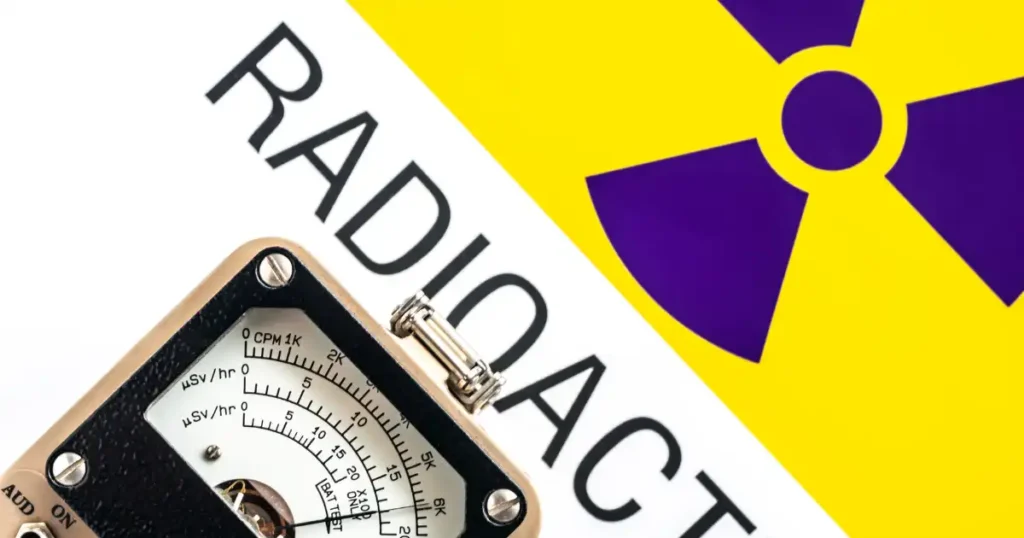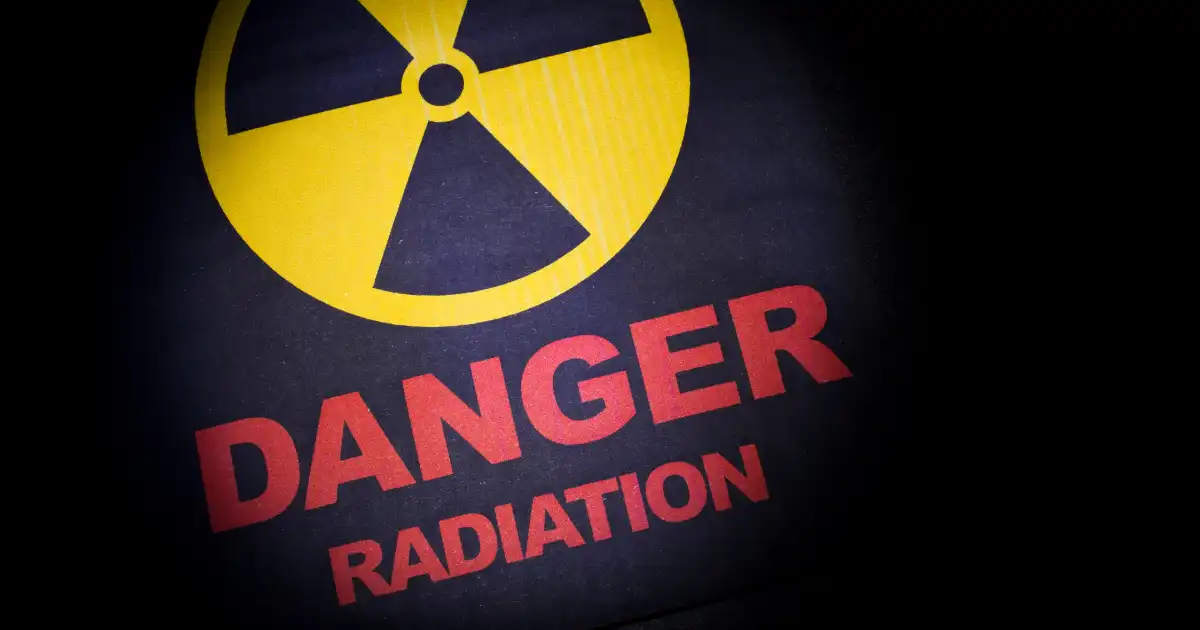Do you ever worry that your air purifier could be silently flooding your home with dangerous radiation? Many people have concerns that these helpful devices may have a hidden downside. But do air purifiers give off radiation?
No, most air purifiers do not emit harmful radiation. They typically use filters to remove particles and pollutants from the air, without emitting harmful radiation. Air purifiers are generally safe and contribute to improved indoor air quality.
What types of radiation exist, and how much are we exposed to in everyday life? Read on to uncover the facts about air purifiers and radiation. Don’t miss out on the essential insights that can help you make informed decisions about improving your indoor air quality.
What is Radiation?
Electromagnetic field (EMF) radiation is the emission of energy through waves or particles. It exists all around us – from sunlight to microwave ovens to cell phone signals.
However, there are different types and doses of radiation. Some forms have enough energy to break chemical bonds and ionize atoms, which can damage DNA and human health. Other types like radio waves do not.
Ionizing radiation has enough energy to remove electrons from atoms, creating ions. Examples include ultraviolet rays, X-rays, and gamma rays. Even low doses over time cause cellular damage that can eventually lead to cancer.
Non-ionizing radiation does not have enough energy to ionize atoms. Examples are radio waves, microwave ovens, infrared light, and visible light. The radiation from these devices does not damage DNA or cells directly.
However, exposure to very high levels can cause heating effects in tissue. Standards limit device emissions well below dangerous thermal thresholds.
So, is all EMF radiation dangerous? Not exactly. We encounter both ionizing and non-ionizing radiation in our everyday environments. The key factors are dose and duration.
Do Air Purifiers Give Off Radiation?
Now that we understand the radiation landscape, let’s get back to our main question – do air purifiers generate EMF radiation?
The short answer is no, most air purifiers on the market are considered safe radiation-wise. However, some models utilize technology like ionizers and UV sterilization that may generate low-frequency emf.
Let’s look at some popular air purification methods:
HEPA Air Purifiers- Catch fine particles through dense filtering layers. Contain no electromagnetic radiation sources.
Activated Carbon – Absorbs gasses and odors. Also contains no radiation emission components.
UV-C Light – Uses short-wavelength ultraviolet light to deactivate germs and viruses. Can emit some non-ionizing UV radiation.
Ionizers – Emit charged atoms (ions) to attract air particles to collection plates. May generate small amounts of ionizing radiation like alpha or beta particles.
So while a few air purifying methods involve radiation-emitting processes, in theory, consumer appliances subject these emissions to rigorous safety testing. Reputable agencies like AHAM, EnergyStar, and CARB enforce very strict standards.
There is an extremely remote chance of dangerous radiation levels in certified home air cleaners from leading brands.
Do You Need to Worry?

Many people hear “radiation” and imagine direct links to nuclear disasters or cancer causes. But not all radiation carries high risks, even in theory.
And well-tested consumer appliances emit extremely low levels – if any. There’s no need to fear ambient traces of non-ionizing radiation emitted from an air purifier.
As mentioned earlier, some specific technologies do involve electromagnetic (EMF) radiation processes. But let’s explore the actual risks:
Ionizers – Produce charged atoms that could theoretically cause very minor ionizing radiation. However, emissions test far below any levels linked to health issues per government safety agencies.
UV-C Light – Emits non-ionizing ultraviolet rays that could cause skin/eye damage in direct exposure. But appliances fully encapsulate UV bulbs, with no ambient radiation leakage. Some devices even cut power if housing is compromised.
Everyday Radiation Perspective
Radiation is all around us – it occurs naturally and from electrical devices. To put air purifier radiation in perspective, here is comparison table of some electronic devices:
| Source | Radiation Exposure |
|---|---|
| Air purifier | 0.2 microrem (max.) |
| Airplane flight | 5 microrem |
| Chest X-Ray | 10 microrem |
| Mammogram | 30 microrem |
| CT Scan | 125 microrem |
| CRT computer monitors/TVs | 0.5 – 2 microrem (proximity exposure) |
| Faulty microwaves | Up to 2 microrem |
The radiation difference is enormous – over 25 times higher exposure flying than from an air filter! And air purifiers emit just 1/50th the exposure of a routine chest x-ray.
The numbers speak for themselves – air cleaners pose extremely low radiation risk with proper safety testing.
Does Levoit Air Purifier Emit Radiation?
Levoit air purifiers use industry-standard filtration methods like HEPA and activated carbon. These trap particles and absorb gasses without emitting any radiation.
Some Levoit models also offer optional ionizer and UV-C sanitation functions. As with any air cleaner brand, their ionizers undergo strict radiation emission testing. Independent labs confirm the actual output is well below concerning exposure levels – less than even natural background radiation.
And their UV bulbs are fully enclosed, with integrated safety shut-off features. So there’s no risk of UV exposure.
In summary – all Levoit air purifiers, across filter types and supplemental sanitation modes, emit extremely low to no radiation. Their safety certification includes rigorous radiation emission analysis by reputable testing agencies like AHAM.
So, you can confidently use any Levoit air purifying appliances without worrying about radiation hazards. Their purification performance delivers cleaner indoor air for better health – not unwanted radiation side effects.
Tips For Safe And Efficient Air Purifier Operation
Here are some tips for safely and effectively using air purifiers:
1. Stay Informed
– Review all product manuals and warning labels before use
– Note any special handling precautions
2. Prioritize Certified Brands
– Seek AHAM, EnergyStar, CARB, and UL certifications
– Avoid sketchy knock-off models lacking safety testing
3. Maintain Proper Operation
– Replace filters per schedule to maintain airflow
– Clean the outside housing periodically
– Take care not to damage internal components
4. Be Wary Of Ozone Generation
– Certain ionizing purifiers may emit concerning ozone levels
– Opt for HEPA models or those explicitly meeting CARB ozone standards
5. Give It Some Space
– Place the unit at least a few feet from walls and sleeping areas
– Allow good airflow access to intakes and outlets
6. Keep Perspective
– Understand everyday radiation exposures via travel, soil, x-rays etc
– Compare against rigorous emission testing standards for appliances
By sticking to reputable brands and following basic usage guidelines, you can feel completely confident in your air purifier’s safety. And filtering the air will boost health – not introduce new risks.
Bottom Line
While it’s wise to be informed, there’s no reason to worry about dangerous radiation from standard home air purifiers. Reputable products undergo extensive emission testing well below exposure levels.
The minimal traces released by technologies like ionizers and UV light compare extremely favorably against commonplace radiation sources in our everyday lives. And air purifiers actively contribute to better health by filtering indoor contaminants.
So rest assured that brands meeting rigorous safety certifications like Levoit won’t leak radiation into living spaces. Operate them according to guidelines for optimal purification, and don’t hesitate to contact the manufacturer with any questions.
With informed, proper use, air purifiers emit only clean air – not radiation!
FAQs
Are there any dangers with air purifiers?
Air purifiers are generally safe and effective in improving indoor air quality. However, some models may produce ozone as a by-product. Additionally, improper maintenance, such as neglecting filter replacements, can lead to the accumulation of pollutants and bacteria.
Should I close my bedroom door when using an air purifier?
Yes, closing your bedroom door when using an air purifier is generally recommended. Doing so helps the purifier more effectively circulate and filter the air within the enclosed space, enhancing its efficiency in removing airborne particles and improving overall air quality.
Do HEPA filters remove radiation?
No, HEPA (High-Efficiency Particulate Air) filters are not designed to remove radiation. These filters are effective in capturing and filtering out airborne particles such as dust, allergens, and microorganisms, but they are not equipped to deal with ionizing radiation.
Why does an air purifier need to be away from the wall?
When you put your air purifier too close to a wall, it can’t do its job as well. The purifier needs space to pull in air from all directions for effective cleaning. If it’s stuck against the wall, it can’t capture as many particles, making it less efficient. To get the most out of your air purifier, give it some room away from the wall so it can clean the air properly.
Should an air purifier go on the floor or desk?
Either location works, but for optimal effectiveness, place the air purifier on the floor. This allows it to better capture and filter airborne particles throughout the room. If space is limited, a desk placement is acceptable, but prioritize floor placement for enhanced air circulation.

